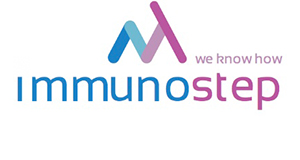CD81
CD81 , Monoclonal, IgG1, Host: Mouse, APC
SKU
IMS81A-100T
Packaging Unit
100 Tests
Manufacturer
Immunostep
Availability:
loading...
Price is loading...
Clone: M38.
Conjugate: APC.
Immunogen: MOLT-4 (human T-ALL cell line).
Storage Buffer: The reagent is provided in aqueous buffered solution containing protein stabilizer, and ≤0.09% sodium azide (NaN3).
Description: This antibody reacts with the CD81-antigen, which is a widely expressed cell-surface protein involved in an astonishing variety of biologic responses. It has been cloned independently several times for different functional effects and is reported to influence adhesion, morphology, activation, proliferation, and differentiation of B, T, and other cells. On B cells CD81 is part of a complex with CD21, CD19, and Leu13. This complex reduces the threshold for B cell activation via the B cell receptor by bridging Ag specific recognition and CD21-mediated complement recognition. Similarly on T cells CD81 associates with CD4 and CD8 and provides a costimulatory signal with CD3. CD81 is also physically and functionally associated with several integrins. Anti-CD81 can activate integrin alpha 4 beta 1 (VLA-4) on B cells, facilitating their adhesion to tonsilar interfollicular stroma.
CD81 (TAPA-1), a member of the tetraspanin family, is expressed on virtually all nucleated cells, but above all on germinal center B cells. CD81 forms complexes with other tetraspanin proteins, integrins, coreceptors, MHC class I and II molecules, and influences adhesion, morphology, activation, proliferation and differentiation of B, T and other cells – e.g. in muscles CD81 promotes cell fusion and myotube maintenance. CD81 has been also identified as a receptor for the hepatitis C virus.
Conjugate: APC.
Immunogen: MOLT-4 (human T-ALL cell line).
Storage Buffer: The reagent is provided in aqueous buffered solution containing protein stabilizer, and ≤0.09% sodium azide (NaN3).
Description: This antibody reacts with the CD81-antigen, which is a widely expressed cell-surface protein involved in an astonishing variety of biologic responses. It has been cloned independently several times for different functional effects and is reported to influence adhesion, morphology, activation, proliferation, and differentiation of B, T, and other cells. On B cells CD81 is part of a complex with CD21, CD19, and Leu13. This complex reduces the threshold for B cell activation via the B cell receptor by bridging Ag specific recognition and CD21-mediated complement recognition. Similarly on T cells CD81 associates with CD4 and CD8 and provides a costimulatory signal with CD3. CD81 is also physically and functionally associated with several integrins. Anti-CD81 can activate integrin alpha 4 beta 1 (VLA-4) on B cells, facilitating their adhesion to tonsilar interfollicular stroma.
CD81 (TAPA-1), a member of the tetraspanin family, is expressed on virtually all nucleated cells, but above all on germinal center B cells. CD81 forms complexes with other tetraspanin proteins, integrins, coreceptors, MHC class I and II molecules, and influences adhesion, morphology, activation, proliferation and differentiation of B, T and other cells – e.g. in muscles CD81 promotes cell fusion and myotube maintenance. CD81 has been also identified as a receptor for the hepatitis C virus.
| SKU | IMS81A-100T |
|---|---|
| Manufacturer | Immunostep |
| Manufacturer SKU | 81A-100T |
| Package Unit | 100 Tests |
| Quantity Unit | PAK |
| Reactivity | Human, Rabbit, Cat (Feline) |
| Clonality | Monoclonal |
| Application | Flow Cytometry |
| Isotype | IgG1 |
| Human Gene ID | 975 |
| Host | Mouse |
| Conjugate | Conjugated, APC (Allophycocyanin) |
| Product information (PDF) | Download |
| MSDS (PDF) | Download |

 Deutsch
Deutsch






